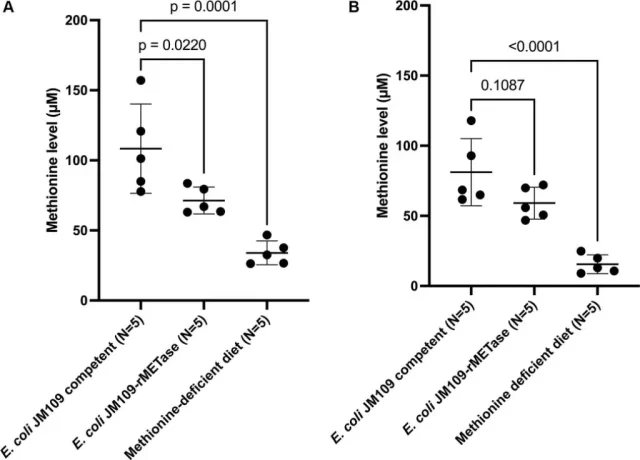New Research Reveals Reversing Age-Related Obesity by Restricting Methionine Intake
- Normal Liver Cells Found to Promote Cancer Metastasis to the Liver
- Nearly 80% Complete Remission: Breakthrough in ADC Anti-Tumor Treatment
- Vaccination Against Common Diseases May Prevent Dementia!
- New Alzheimer’s Disease (AD) Diagnosis and Staging Criteria
- Breakthrough in Alzheimer’s Disease: New Nasal Spray Halts Cognitive Decline by Targeting Toxic Protein
- Can the Tap Water at the Paris Olympics be Drunk Directly?
New Research Reveals Reversing Age-Related Obesity by Restricting Methionine Intake
- Should China be held legally responsible for the US’s $18 trillion COVID losses?
- CT Radiation Exposure Linked to Blood Cancer in Children and Adolescents
- FDA has mandated a top-level black box warning for all marketed CAR-T therapies
- Can people with high blood pressure eat peanuts?
- What is the difference between dopamine and dobutamine?
- How long can the patient live after heart stent surgery?
New Research Reveals Reversing Age-Related Obesity by Restricting Methionine Intake
Obesity tends to increase with age, and limiting methionine intake has been shown to affect fat metabolism and prevent obesity in mice.
A recent study published in the “Aging” journal has found that restricting the amino acid methionine can impact fat metabolism and contribute to obesity prevention.
In the study, researchers observed that C57BL/6 mice doubled their body weight over a period of 4 to 48 weeks, becoming obese in the process.
While mouse body weight tends to increase with age, it was reversible in older mice through a diet lacking methionine or treatment with the methionine-restricted E. coli strain JM109-rMETase.
Both approaches significantly lowered methionine levels, with the dietary method being more effective and not reducing lean muscle mass.
Although it may be challenging for humans to restrict methionine intake solely through diet, oral methionine enzymes and engineered E. coli strains have shown promise in lowering blood methionine levels, suggesting their potential clinical application in reversing age-related obesity.
The research team subsequently assessed the effectiveness of oral administration of recombinant methionine enzyme (rMETase)-producing E. coli (E. coli JM109-rMETase) or a methionine-deficient diet in reversing age-related obesity in C57BL/6 mice.
“In this study, we tested the reversal of age-related obesity with a low methionine diet […] This study also tested E. coli JM109-rMETase for reversing age-induced obesity,” said researcher Yutaro Kubota.

Blood methionine levels on day 15 (A) and day 29 (B). Image source: 2023 Kubota et al.
Fifteen male C57BL/6 mice aged 12-18 months were divided into three groups. Group 1 received a normal diet supplemented with non-recombinant E. coli JM109 cells, administered orally twice daily; Group 2 received a normal diet supplemented with recombinant E. coli JM109-rMETase cells, administered orally twice daily; Group 3 received a methionine-deficient diet with no additional treatment.
Both E. coli JM109-rMETase and the methionine-deficient diet reduced methionine levels in the blood and reversed age-related obesity, with a significant decrease in body weight after 14 days.
Methionine levels showed a negative correlation with body weight. While the methionine-deficient diet group showed a higher efficacy than the E. coli JM109-rMETase group, the results of this study suggest that oral administration of E. coli JM109-rMETase and a methionine-deficient diet can effectively reverse age-related obesity.
“The evidence provided by this study indicates that limiting methionine through a low-methionine diet or E. coli JM109-rMETase holds clinical potential for treating age-related obesity.”
This is the first report demonstrating that restricting methionine intake can effectively reverse age-related obesity.
New Research Reveals Reversing Age-Related Obesity by Restricting Methionine Intake
(source:internet, reference only)
Disclaimer of medicaltrend.org
Important Note: The information provided is for informational purposes only and should not be considered as medical advice.



